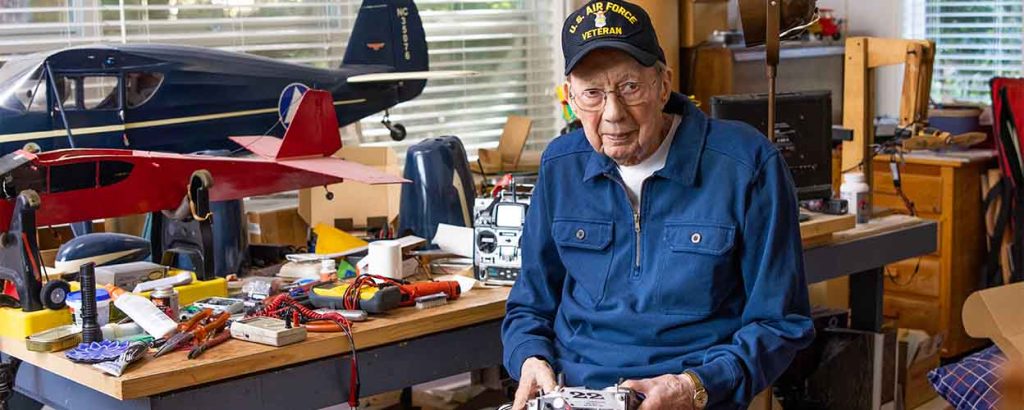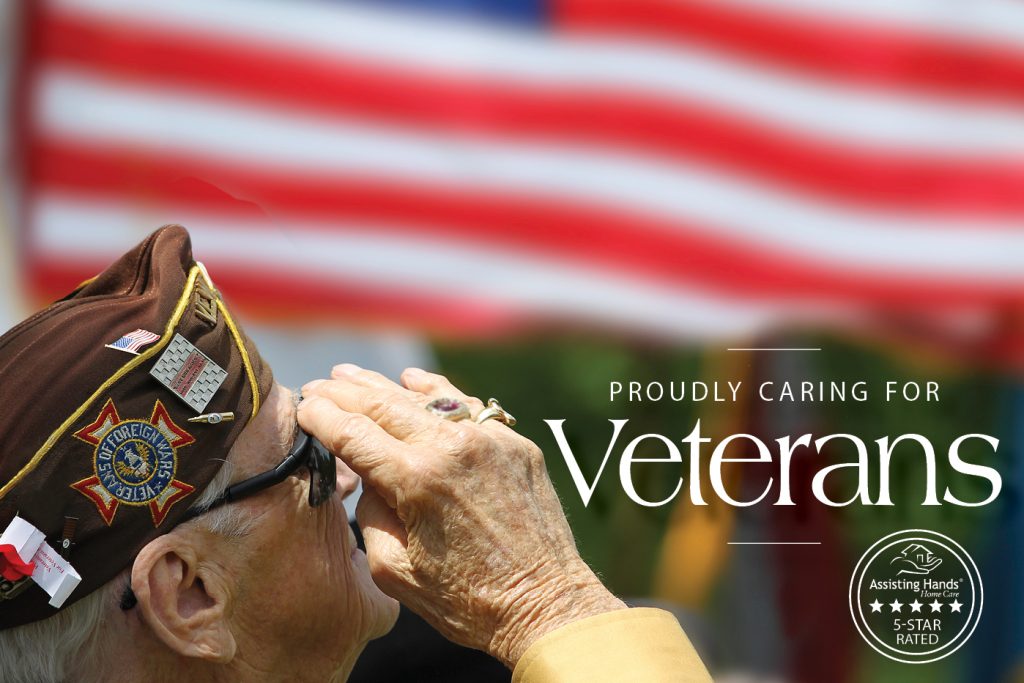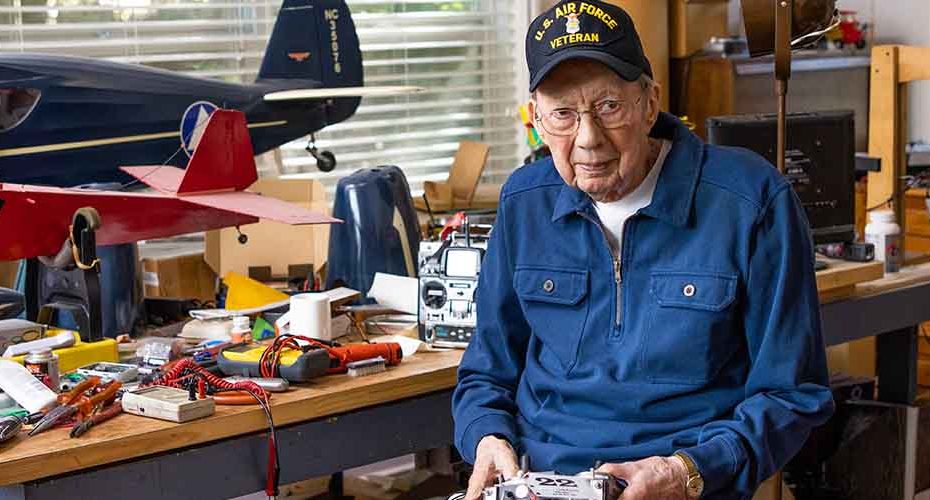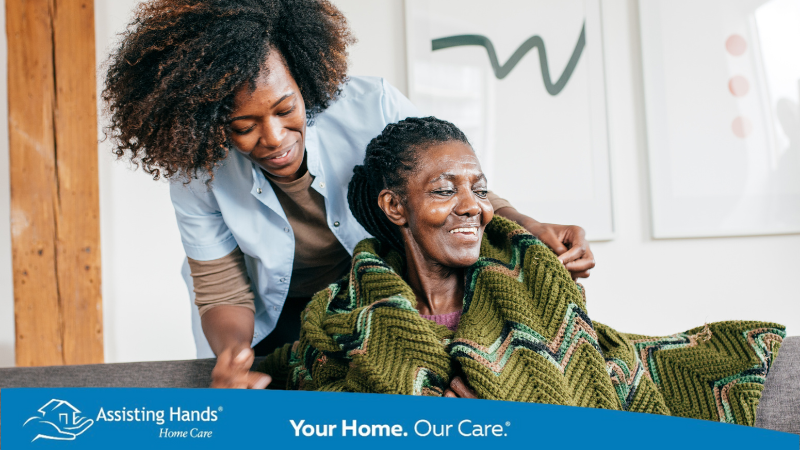Individuals who bravely served the nation may be eligible for veteran home care. Qualified veterans receive a substantial monthly sum to help pay for professional caregiver services in the comfort of their homes. The following are the eligibility criteria for this convenient form of care.
Like most aging people, veterans are likely to require some form of home care to help them live independently in their own homes. Older veterans may live with a chronic illness or disability or suffer from physical impairments, like vision loss, that necessitate the services of a caregiver.
Home care comes at a hefty financial cost, with the median national average being $45,670 per year for the services of a full-time custodial caregiver. Full-time caregiver costs differ depending on the state, with some being thousands of dollars higher or lower.

What is the Veterans Aid and Attendance program?
The Veterans’ Aid and Attendance (A&A) benefit program alleviates some of the burden of paying home care costs. This is a benefit that is paid in addition to the elderly veteran’s monthly pension. While the benefit may not cover the full cost of home care, it provides significant financial help.
How much is the monthly Aid and Attendance benefit?
A veteran who qualifies for the A&A benefit receives up to $1,794 per month. A surviving spouse of a war veteran can also receive benefits, provided he/she remained married to the veteran until the latter’s time of death and did not remarry. The surviving spouse receives $1,153 per month.
Spouses may also be eligible to receive the A&A benefit. A veteran who applies for the benefit with a spouse who needs care may receive a monthly sum of up to $1,410. The financial assistance can be used to pay for caregivers, including family members serving in a caregiver role.
What are the eligibility criteria for the Aid and Attendance program?
Veterans who are already eligible for a monthly VA pension may apply for the A&A benefit program. As a supplemental payment, the benefit is available to seniors living at home and needing a professional to regularly assist them with the activities of daily living.
- Service Criteria
Older war veterans with 90 days of active duty and at least one day during active wartime may be eligible for this benefit. War times include WW II, the Korean Conflict, the Vietnam Era, and the Gulf War. A veteran does not need to have served in combat to be eligible.
- Financial Criteria
In addition to service requirements, the veteran must meet specific financial qualifications. The VA assesses the applicant’s gross monthly income and out-of-pocket medical expenses. An Income and Asset Test (provisions that are not disclosed to the public) must be passed in order to qualify.
- Medical Criteria
The veteran must also meet medical qualifications. The VA requires at least one of four criteria to be true for applicants who receive a VA pension, one of which is that the senior needs a caregiver to provide assistance with the activities of daily living, like bathing or dressing.
A second criterion is that the elderly individual is bedridden due to illness. Thirdly, the senior lives with a physical or mental disability and therefore resides in a nursing home. Lastly, the applicant suffers from vision loss that cannot be fully corrected despite glasses or contact lenses.
Alternatively, a veteran may be eligible for the VA’s housebound benefit. The senior may receive this benefit if they already get a VA pension and spend most of their time at home due to a permanent disability. The senior cannot receive both the A&A benefit and the housebound benefit simultaneously.
How do veterans apply for the Aid and Attendance benefit?
Veterans of any age interested in applying for the A&A benefit should fill out VA Form 21-2680 (Examination for Housebound Status or Permanent Need for Regular Aid and Attendance) and mail it to their state’s pension management center or bring it to their nearest VA regional office.
The examination information portion of the form may be filled out by the veteran’s physician. Applicants are advised to include evidence, such as a doctor’s report, demonstrating the need for A&A or housebound care. Provide information about any illness or disability that hinders independence.
Once the VA begins processing the application, it takes months to arrive at a decision. Benefit funds are unavailable during the processing period. Upon approval, however, retroactive benefits dating back to the original application date are paid out as a lump sum, followed by regular monthly benefit payments.
A caregiver who provides in-home help with daily activities is not only a matter of convenience but a step closer to living a higher quality of life. Veterans have the opportunity to remain at home for as long as possible, thereby living with the dignity and comfort they deserve.

Call Assisting Hands Home Care for Veterans Home Care
If you are a veteran or a family member of a veteran, it’s important to be aware of VA resources that give seniors a better quality of life. VA caregiver programs from Assisting Hands Home Care provide non-medical, in-home support so that older adults stay physically and emotionally healthy.
We offer high-quality veteran home care programs designed to support elderly care recipients with self-care tasks, such as personal hygiene, meal preparation, grocery shopping, and light housekeeping. Caregivers provide timely medication reminders and drive seniors to destinations in the community.
Companionship is a vital component of our veteran home care services. Caregivers engage socially with care recipients to prevent them from feeling isolated or lonely. Care options are flexible, ranging from respite care to live-in care. We customize an ideal care plan based on the veteran’s care needs.
Seniors who are eligible for veterans’ benefits are encouraged to choose Assisting Hands Home Care. Our exceptionally rated elder care agency fulfills the daily care needs of older adults in Palos Heights, Illinois.
Schedule a free in-home consultation today and learn how we can support you or your loved one.
















